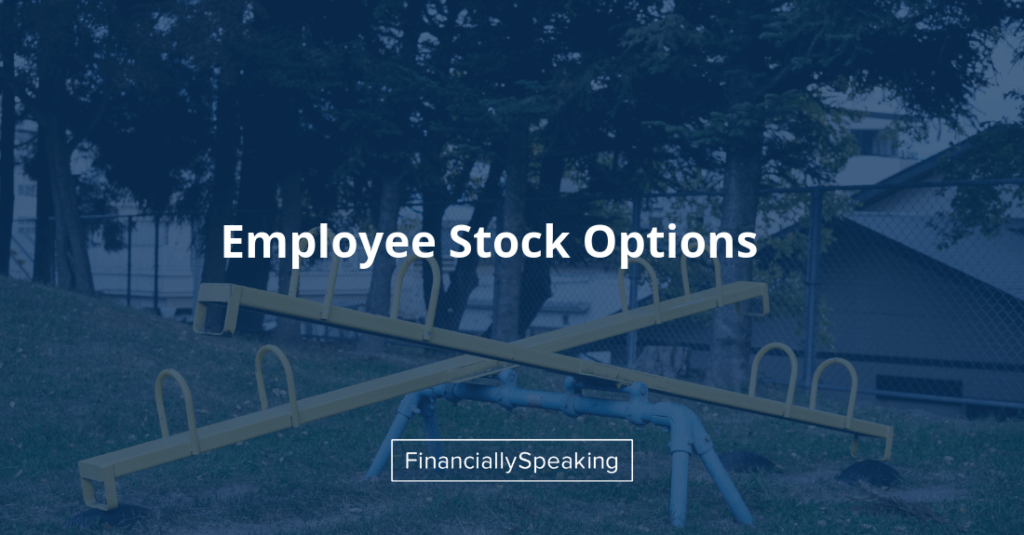Employee Stock Options
Have you been granted employee stock options from your company or are you just curious about how they work? If so, here’s a simple guide.
What are they?
Stocks options gives you the right — but not the obligation — to buy the stock of the company at a specified price known as the exercise or strike price. The ultimate value of the option is the difference between the stock price and the exercise price. As the stock price goes up, the option value can increase at a dramatic rate; however, if the stock price declines, the options could be worthless, not just worth less.
How do the mechanics work?
Employee stock options are granted to certain employees, usually when they join a company. There’s no standard approach for how many shares are granted or if more are granted in the future. Understand three key features when you receive an option grant:
- the vesting period
- the exercise price
- what happens if you leave the company
The Vesting Period
When you receive your stock option grant, you don’t yet “own” the options as they vest over a period of time. A common vesting period is proportionally over 4 years and in that case, you vest 1/48 of the options each month and after 4 years, you own 100% of the options grant. If you leave the company during this time, you’re entitled to the vested portion of the grant.
The Exercise Price
In addition to the number of shares you’re receiving, your option grant will specify the exercise price. In most cases, employee stock options are granted at the so-called fair market value at the time of the grant. In English, this means that the exercise price of your options is equal to the stock price on the date of the grant.
If you work at a public company, the current stock price is easy to determine. For private companies, there is no independent and precise way to assess the value of the stock at any time. Private companies usually make a good faith estimate of the per share value at a few different times of the year and use that for grants that are made during that time.
Should you exercise your options when you leave your company?
You have a short window in which you can exercise your vested options when you leave a company — typically, this is 30 to 90 days as specified in the options agreement that you signed but probably never read.
If your options are in a public company, the decision to exercise is easy. If the current stock price is higher than your exercise price, do so, and then immediately sell the stock. Pocket the difference, pay some tax, celebrate your good fortune, and move on. If the current stock price is less than the exercise price, let your options expire as worthless, embrace the learning experience, and move on.
If your options are in a private company, your decision is trickier and riskier:
- You don’t know what they’re worth as there is no stock exchange in which to see the stock price.
- You cannot immediately sell the shares if you do exercise, so you’re stuck holding on to them for some indefinite period of time with no clarity of when you might be able to sell or what they may be worth at that future point.
- If you do exercise them, you’ll need the cash to pay for the shares.
- Depending on the type of options, you may also face a tax liability upon exercise, even though you have not sold the stock.
For these reasons, option grants in a private company are less valuable than those in a public company, especially if you don’t think you’ll remain there long enough to see the company through to an IPO or an acquisition (a “liquidity event” to use the industry patois). Even if you’re convinced the options are “in the money,” you may have no choice but to let them go when you leave the company.
Is everyone becoming an options millionaire except for you?
No. You’re more likely to hear about the few created from venture-funded private companies than the many more people who worked at other private companies which didn’t make it and whose options expired as worthless. Those stories don’t come up as often at the cocktail parties but they’re the more typical experience.
Almost no one becomes a millionaire from stock option grants. Very few companies manage to go public or be acquired for large valuations and typically very few employees within those companies have received large enough grants to change their lives. Most venture capital financed private companies fail so it’s not just you who missed out on this opportunity, it’s nearly everyone.
